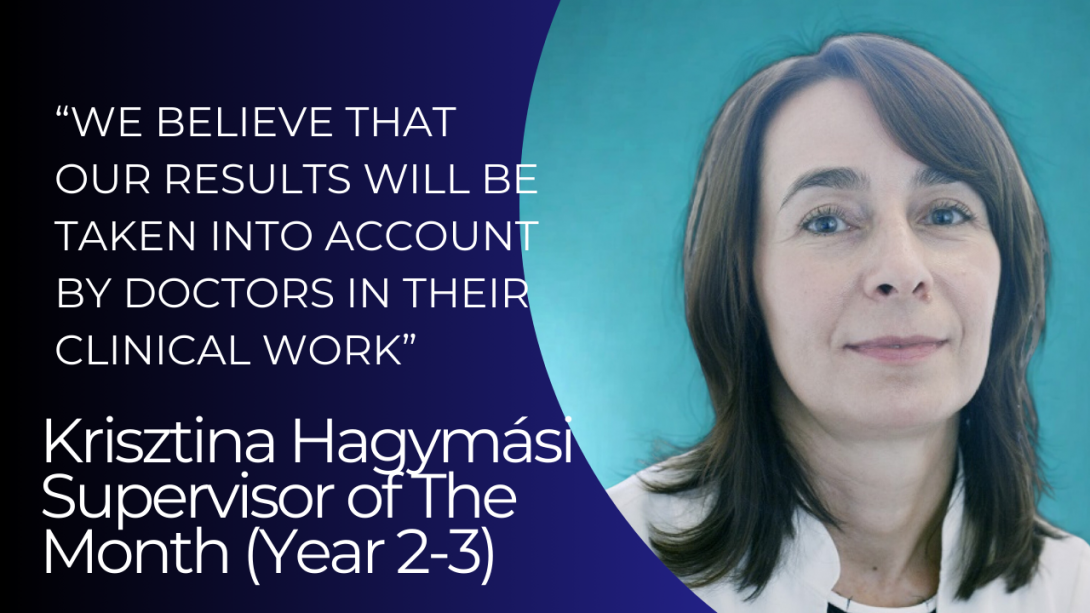
She has been a dedicated supervisor of Ph.D. students for a long time, and became involved in CTM training three years ago. Her student has just published a paper in a D1 journal on vitamin D supplementation in chronic liver disease. In June, Krisztina Hagymási was named Supervisor of the Month (Year 2/3) at the Centre for Translational Medicine.
Dr. Hagymási is a gastroenterologist and hepatologist at the Department of Surgery, Transplantation and Gastroenterology, Semmelweis University, serving as the supervisor for Petrana Martinekova, a gastroenterology resident. “The CTM training had already caught my attention before I became Petrana's supervisor. I find it useful that in this program students not only obtain a Ph.D. degree, but also acquire the methodology of academic work. This is very useful in clinical work later.”
In her first project, Petrana has made a comprehensive analysis of vitamin D supplementation in patients with chronic liver disease. Her research topic stems from the fact that her supervisor at the clinic works with patients with liver disease, and Petrana was also interested in hepatology. She is dedicated about improving the quality of life and outcomes of liver patients.
“Clarifying how to supplement vitamin D is important because people with liver disease are known to be often deficient in vitamin D, but it is not clear when and how to administer it to them. There are no clear guidelines on this. For this reason, we wanted to define this accurately, based on evidence. We also wanted to raise awareness of the importance of vitamin D supplementation for people with liver disease. We have just published our research on this in Nutrition Reviews. We believe that our results will be referred to and taken into account by doctors in their clinical work. Petrana's second project also deals with liver disease, and it is based on the finding that these patients are often immunocompromised, and therefore very vulnerable to infection. Since such a disease can cause liver failure, it is important to detect it as early as possible. In this study, we try to clarify the diagnostic accuracy of biomarkers in cirrhotic patients with bacterial infections.”
Dr. Hagymási finds it a great experience to help her student, and she is pleased to witness her continuous improvement. “We met every week when the work started, and I saw her presentations and her debating skills developing. Our work was greatly helped by Mahmoud Obeidat, our scientific methodology supervisor, and we also received tremendous support from statisticians. Petrana has returned to Slovakia and joined the residency training there, but we are still discussing research work on online platforms.”
(Szabó Emese)